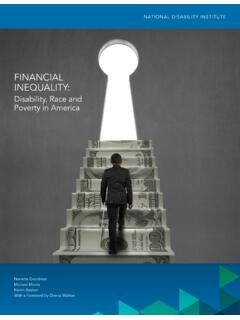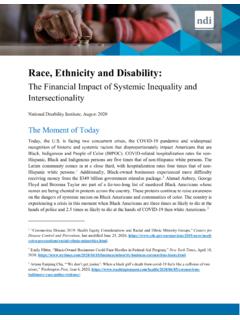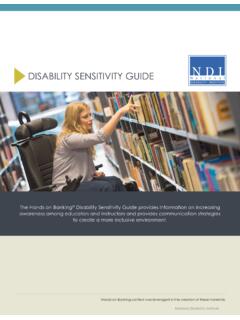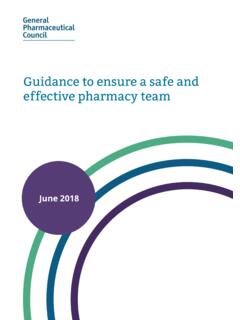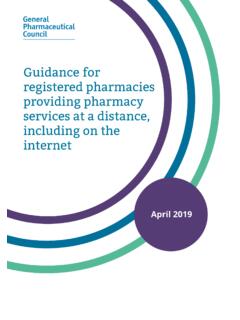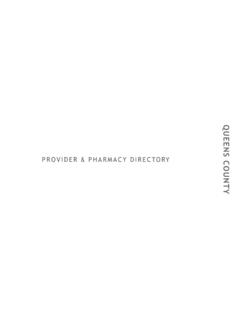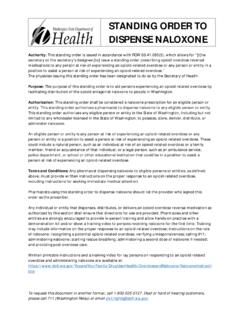Transcription of The ADA and Face Mask Policies - National Disability Institute
1 Page 1 of 10 Southeast ADA Center A project of the Burton Blatt Institute (BBI) at Syracuse University and regional center in the ADA National Network For the most current and accessible version, please visit: The ADA and Face Mask Policies Updated: 7/2/2020 Introduction The COVID-19 pandemic has changed our world in many ways. People with disabilities, people with chronic health conditions such as heart disease, lung disease, and diabetes, and people over the age 60, are at a higher risk of becoming infected and most likely to become seriously ill. Safety measures such as social distancing, stay at home orders, and the wearing of face masks or cloth face coverings are now part of our daily lives. For the purposes of this document, the term face mask will be used for both face masks and cloth face coverings.
2 Wearing a face mask is one important way to slow the spread of COVID-19. The Centers for Disease Control and Prevention (CDC) recommends wearing a face mask in public places like grocery stores and pharmacies , where it is hard to stay six feet apart from other people. [1] Several state and local governments are requiring the use of a face mask when in public spaces. Wearing a face mask may be difficult for some people with a Disability . State and local government agencies or private businesses that want customers to use a face mask may have questions and concerns. This fact sheet offers answers to questions about the issue of face mask Policies , reasons why a person with a Disability might not be able to wear a face mask, and the legal rights a person has under the Americans with Disabilities Act (ADA).
3 The ADA and Face Mask Policies Updated: 7/2/2020 Page 2 of 11 May a state or local government agency or business require customers to wear a face mask? On March 11, 2020, the World Health Organization (WHO) declared COVID-19 as a pandemic. [2] The Centers for Disease Control and Prevention (CDC) notes that studies have shown that many people who do not have symptoms of COVID-19 can spread the virus to other people. Because it takes four to fourteen days for someone to show symptoms, they also may infect others without knowing it. [3] This means that the virus can be shared between people who are close to each other. For example, people who are speaking, coughing, or sneezing may spread the virus even if they do not have symptoms.
4 [4] Therefore, the CDC recommends that people over age two w ear a face mask in public where it can be hard to stay six feet apart from others. [5] Based upon the CDC guidance, a business or government agency may require customers to wear a face mask to limit the spread of COVID-19. Guidance from the CDC is likely to change as the COVID-19 pandemic evolves. Therefore, private businesses and government agencies should follow the most current information on maintaining safety by reviewing the Centers for Disease Control and Prevention (CDC) Coronavirus (COVID-19) information. Is there a reason a person might not be able to wear a face mask? The CDC states that a person who has trouble breathing, is unconscious, incapacitated, or otherwise unable to remove the face mask without assistance should not wear a face mask or cloth face covering.
5 [6] The ADA and Face Mask Policies Updated: 7/2/2020 Page 3 of 11 Examples of a person with a Disability who might not be able to wear a face mask Individuals with respiratory disabilities such as asthma, chronic obstructive pulmonary disease (COPD), or cystic fibrosis may not be able to wear a face mask because of difficulty in or impaired breathing. People with respiratory disabilities should consult their own medical professional for advice about using masks. The CDC also states that anyone who has trouble breathing should not wear a face mask. [ 7] People with post-traumatic stress disorder (PTSD), severe anxiety, or claustrophobia (an abnormal fear of being in enclosed or narrow places), [8] may feel afraid or terrified when wearing a face mask.
6 These individuals may not be able to stay calm or function when wearing a face mask. Some people with autism are sensitive to touch and texture. [ 9] Covering the nose and mouth with fabric can cause sensory overload, feelings of panic, and extreme anxiety. A person who has cerebral palsy may have difficulty moving the small muscles in the hands, wrists, or fingers. Due to their limited mobility, they may not be able to tie the strings or put the elastic loops of a face mask over the ears. This means that the individual may not be able to put on or remove a face mask without assistance. A person who uses mouth control devices such as a sip and puff to operate a wheelchair or assistive technology, or uses their mouth or tongue to use assistive ventilators will be unable to wear a mask.
7 The ADA and Face Mask Policies Updated: 7/2/2020 Page 4 of 11 If a person with a Disability is unable to wear a face mask, do I still have to allow them in my business or government agency? Many state and local governments have either recommended or issued executive orders requiring people to use face masks in public. Private businesses have also developed Policies requiring the use of face masks. The ADA does not have any rules that address the required use of face masks by state and local governments or private business owners. If a person with a Disability is not able to wear a face mask, state and local government agencies and private businesses must consider reasonable modifications to a face mask policy so that the person with the Disability can participate in, or benefit from, the programs offered or goods and services that are provided.
8 A reasonable modification means changing Policies , practices, and procedures, if needed, to provide goods, services, facilities, privileges, advantages, or accommodations to an individual with a Disability . [10] The requirement to modify a policy, practice, or procedure does not include individuals without disabilities, as they are not protected under the ADA. Examples of reasonable modifications to a face mask policy Allow a person to wear a scarf, loose face covering, or full face shield instead of a face mask; Allow customers to order online with curbside pick-up or no contact delivery in a timely manner; Allow customers to order by phone with curb-side pick-up or no contact delivery in a timely manner; Allow a person to wait in a car for an appointment and enter the building when called or texted; or Offer appointments by telephone or video calls.
9 The ADA and Face Mask Policies Updated: 7/2/2020 Page 5 of 11 Are there any situations when an agency or business does not have to provide a reasonable modification to the face mask policy? There are three reasons under the ADA that a state or local government agency or private business may not have to provide a reasonable modification. Fundamental Alteration A state or local government agency or private business may not have to provide a reasonable modification if t he modification would change the nature of the service, program, activity, goods, services, or facilities. [ 11][12] A fundamental alteration is a change to such a degree that the original program, service, or activity is no longer the same. [13] Example of a fundamental alternation: A customer requests that a store deliver her items to her home as a reasonable modification so that she does not have to enter the store.
10 The store does not offer a home delivery. Therefore, the store would not have to grant the request for home delivery since it would be a fundamental alteration of their services. Undue Burden A state and local government agency or a private business is not required to take any action that it can demonstrate would result in an undue financial or administrative burden. An undue burden is a significant difficulty or expense. [ 14][15] Example of an undue burden: A person would like to visit a municipal library when no other customers are present. He requests that staff allow him in 30 minutes before the building opens. This might be an undue burden for the library due to limited staffing. The ADA and Face Mask Policies Updated: 7/2/2020 Page 6 of 11 Direct Threat A state or local government agency or private business may not have to provide a reasonable modification to the face mask policy if the individual with a Disability poses a direct threat to the health or safety of others.
